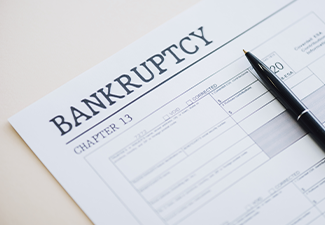What Happens to Investment Properties in Chapter 13 Bankruptcy?
Feb. 20, 2025
 Filing for Chapter 13 bankruptcy can sometimes be confusing if you own investment properties. Without legal guidance, it can be hard to determine how your rental homes, commercial units, or other investment properties will be affected by repayment plans, court requirements, and creditor concerns.
Filing for Chapter 13 bankruptcy can sometimes be confusing if you own investment properties. Without legal guidance, it can be hard to determine how your rental homes, commercial units, or other investment properties will be affected by repayment plans, court requirements, and creditor concerns.
This is where Vivona Pandurangi, PLC, can help. Based out of Falls Church, Virginia, our firm helps clients in Falls Church, Alexandria, Arlington, Fairfax, Manassas, Prince William, and Loudon understand the implications of bankruptcy on their financial assets.
Whether you’re weighing the decision to file or grappling with protecting your real estate portfolio, our experienced attorneys can guide you. Here, we aim to explore how Chapter 13 bankruptcy will impact your investment properties and how you can maximize the potential retention of these properties.
How Investment Properties Are Treated in Chapter 13 Bankruptcy
Chapter 13 bankruptcy involves creating a court-approved repayment plan based on your income, assets, and debts. While this debt relief option can help individuals restructure their financial obligations, your investment properties can potentially complicate the process. Some important ways investment properties are treated under Chapter 13 include the following:
Investment Properties Are Not Automatically Liquidated
Unlike Chapter 7, where non-exempt assets may be sold to pay creditors, Chapter 13 lets you keep your property. However, investment properties are viewed differently from primary residences. Since these properties are not your home, you may not receive the same protections as you would for your primary residence.
If you want to keep an investment property, you must prove that it generates or has the potential to generate enough income to sustain itself through your repayment plan.
The bankruptcy court will likely scrutinize the income and expenses for any investment property to determine whether keeping it aligns with your repayment obligations.
Property Value and Equity Matter
The value of your investment properties and how much equity you hold in them are critical factors in Chapter 13. Equity is calculated by comparing the outstanding mortgage balance against the property’s current market value.
If you have significant equity in your investment properties, creditors may push for its sale to satisfy your debt obligations. However, your attorney can help you explore options to retain the property while meeting the terms of the repayment plan.
Rental Income Can Support Your Repayment Plan
One advantage of owning investment properties in Chapter 13 bankruptcy is rental income. If the rental income from your property can offset its mortgage payments or add to your monthly disposable income, it might strengthen your case. This requires strategic planning and detailed documentation for the bankruptcy court’s approval.
Late Mortgage Payments and Arrears
If you’re behind on your mortgage payments for your investment properties, Chapter 13 allows you to include those arrears in your repayment plan. This gives you time to catch up on missed payments without the fear of immediate foreclosure. However, missing a payment after filing your repayment plan could jeopardize your case.
Non-Performing Investment Properties Could Be Flagged
Properties that don't generate rental income or cost more in maintenance than they’re worth may become liabilities during bankruptcy proceedings. Creditors or trustees might suggest selling non-performing properties to free up funds for your other obligations.
Virginia Laws Governing Bankruptcy and Property Exemptions
If you’re filing for Chapter 13 in Virginia, understanding these laws can substantially affect how much protection your investment properties receive. Some of the primary laws you should be familiar with include the following:
Virginia’s Homestead Exemption
While Virginia's homestead exemption primarily applies to primary residences, it may also allow partial equity protection for other property.
Virginia allows claimants to exempt up to $5,000 of equity and an additional $500 for each dependent. If you’re 65 or older, the exemption increases to $10,000. The homestead exemption can sometimes be applied to investment property equity in limited circumstances, though it’s more commonly used for personal assets.
Bankruptcy Means Test Requirement
Virginia requires filers to pass a means test comparing their income to the state’s median income. If your income is above the median, you may still qualify for Chapter 13 but will likely have higher repayment obligations. High income, paired with significant investment properties, could complicate your case.
Foreclosure Protections
Virginia is a nonjudicial foreclosure state where creditors can foreclose on properties without going through the courts. Filing for Chapter 13 automatically halts foreclosure proceedings, but retaining investment properties through the bankruptcy process requires proactive, informed action guided by skilled legal assistance.
What to Do If You’re a Property Owner Facing Bankruptcy
If you’re struggling to reconcile your finances while protecting your investment properties, it's important to act quickly. Gather detailed financial records, including property appraisals, mortgage statements, tax returns, and rental income documentation, to determine whether your properties contribute to your repayment plan positively or negatively.
More importantly, hire a seasoned attorney who understands property valuation, creditor negotiations, and Virginia state law.
Your goals during bankruptcy are unique. Your attorney can craft a plan to meet your immediate financial needs and create a long-term investment strategy.
Bankruptcy Attorneys in Falls Church and Alexandria
At Vivona Pandurangi, PLC, we believe that everyone should have access to affordable legal counsel. When you choose to work with us, we strive to minimize costs and simplify the bankruptcy process so you can focus on what matters most.
If you’re worried about losing your investment properties or managing mounting debt, we represent residents in Falls Church, Alexandria, Arlington, Fairfax, Manassa, Prince William, and Loudon, Virginia. Call today to schedule a consultation.
